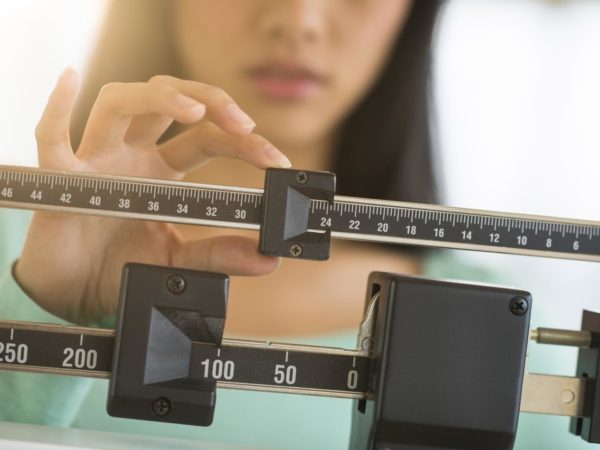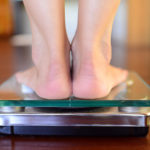Does Weight Loss Prevent Breast Cancer?
I understand that losing weight can help protect women from breast cancer. How much weight loss is needed?
Andrew Weil, M.D. | February 13, 2020

Research published in December 2019 suggests that weight loss in women age 50 and older is associated with a lower risk of breast cancer. The findings showed that the more weight a woman loses after age 50, the lower her risk, as long as she is not on hormone replacement therapy. The researchers reported that women who lost from 4.4 to 10 pounds had a 13 percent lower risk of breast cancer than women whose weight remained stable. Losing 10 to 20 pounds lowered the risk by 16 percent and a loss of 20 pounds or more was associated with a 26 percent lower risk. Further, women who lost 20 pounds or more and gained some – but not all – of it back, had a lower risk compared with women whose weight remained stable.
The investigators, from the American Cancer Society and the Harvard T.H. Chan School of Public Health, noted that more than 60 percent of adult women in the United States are overweight or obese and that a high body mass index is an established risk factor for postmenopausal breast cancer. Their study was the first to show that losing weight can lower that risk. It involved following 180,000 women age 50 and older for about 10 years. Each woman was weighed three times during those years – when she enrolled in the study, after about five years and then about four years later. Over the 10 years, 7,000 of the women were diagnosed with breast cancer.
We’ve long known that weight gain after age 18 to between the ages of 50 and 60 has been consistently associated with increased risk of post-menopausal breast cancer. When the ovaries stop producing hormones after menopause, fat cells generate most of the estrogen in women’s bodies. The more fat tissue, the higher a woman’s estrogen levels are likely to be and the higher her risk of breast cancer.
We also know that regular physical activity can reduce risk, possibly because it can lead to weight loss and decrease the amount of body fat, thereby reducing exposure to circulating estrogen.
If you’re watching your weight to reduce your risk of breast cancer and other health problems associated with overweight and obesity, here are some suggestions that may help:
- Choose healthy fats: Studies have shown that women with a higher intake of olive oil have less breast cancer. Omega-3 fats, found in cold-water fish (especially wild salmon and sardines), freshly ground flaxseed and walnuts have also been associated with inhibiting the growth of breast tumors
- Eat lots of vegetables and fruit.They contain cancer-protective phytocompounds, especially cruciferous vegetables such as broccoli, cauliflower, kale and watercress. I recommend consuming 8 to 10 servings of vegetables and fruits a day.
- Eat less meat: Women who eat the most meat have a higher risk of breast cancer. If you eat beef, choose organic varieties to reduce your exposure to residues of hormones used as growth promoters in cattle, and cook it less rather than more – a preference for well-done meat correlates with increased risk because carcinogenic compounds form when animal tissue is cooked at high temperatures.
Andrew Weil M.D.
Source:
Lauren R. Teras et al, “Sustained weight loss and risk of breast cancer in women ≥50 years: a pooled analysis of prospective data,” Journal of the National Cancer Institute, December 17, 2019, doi.org/10.1093/jnci/djz226












